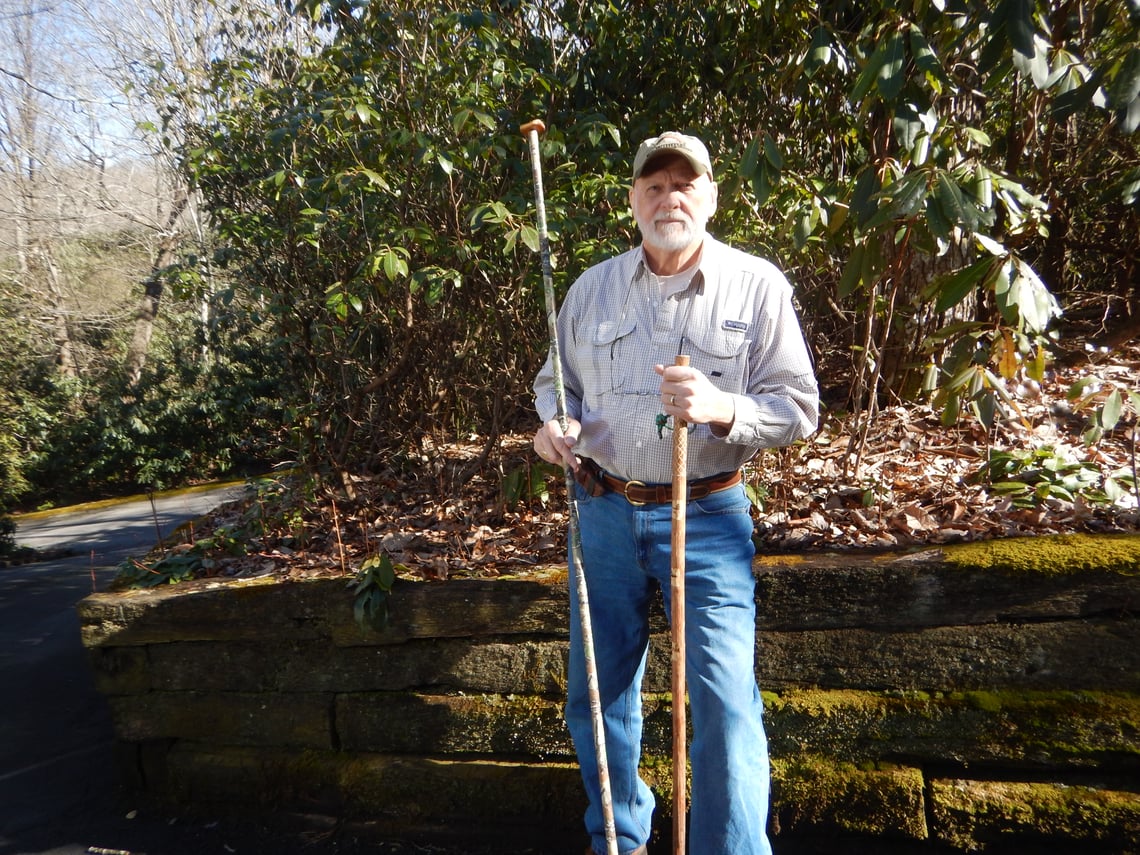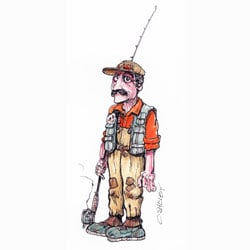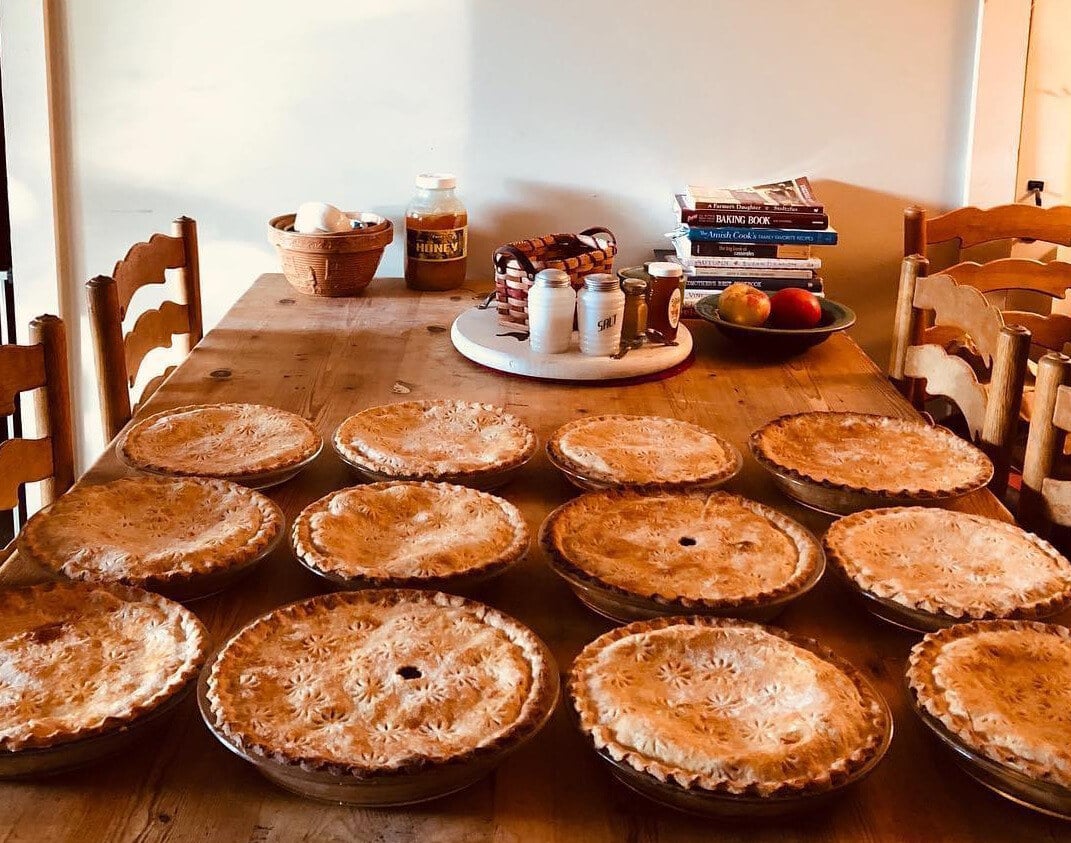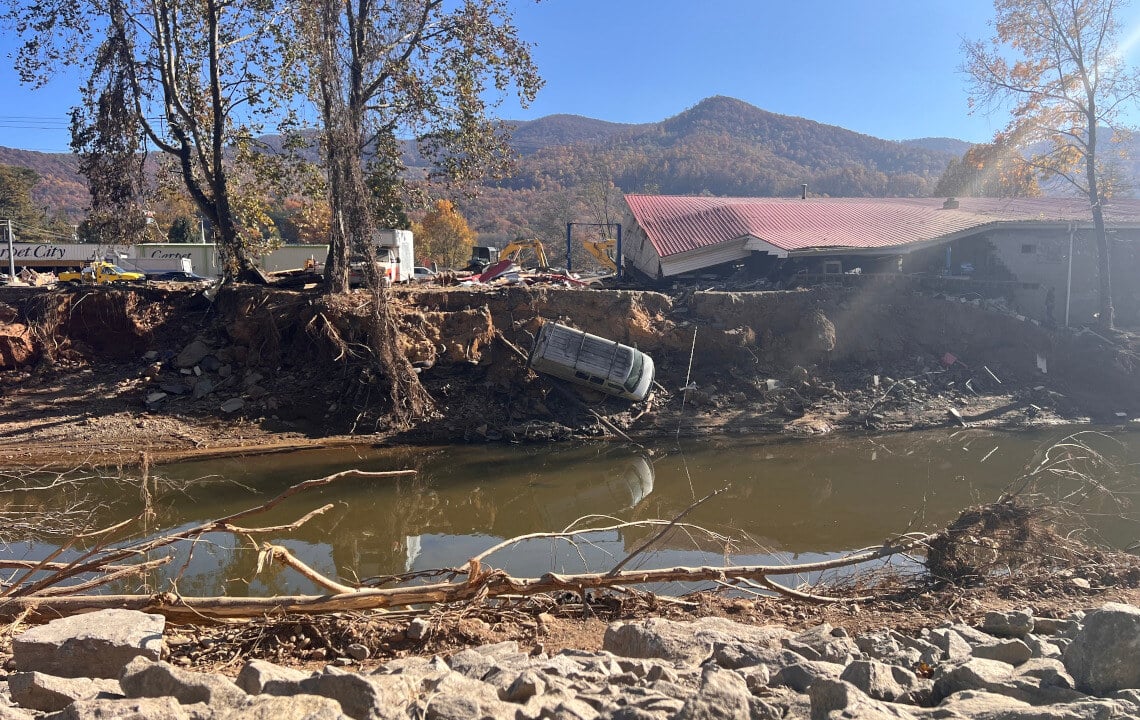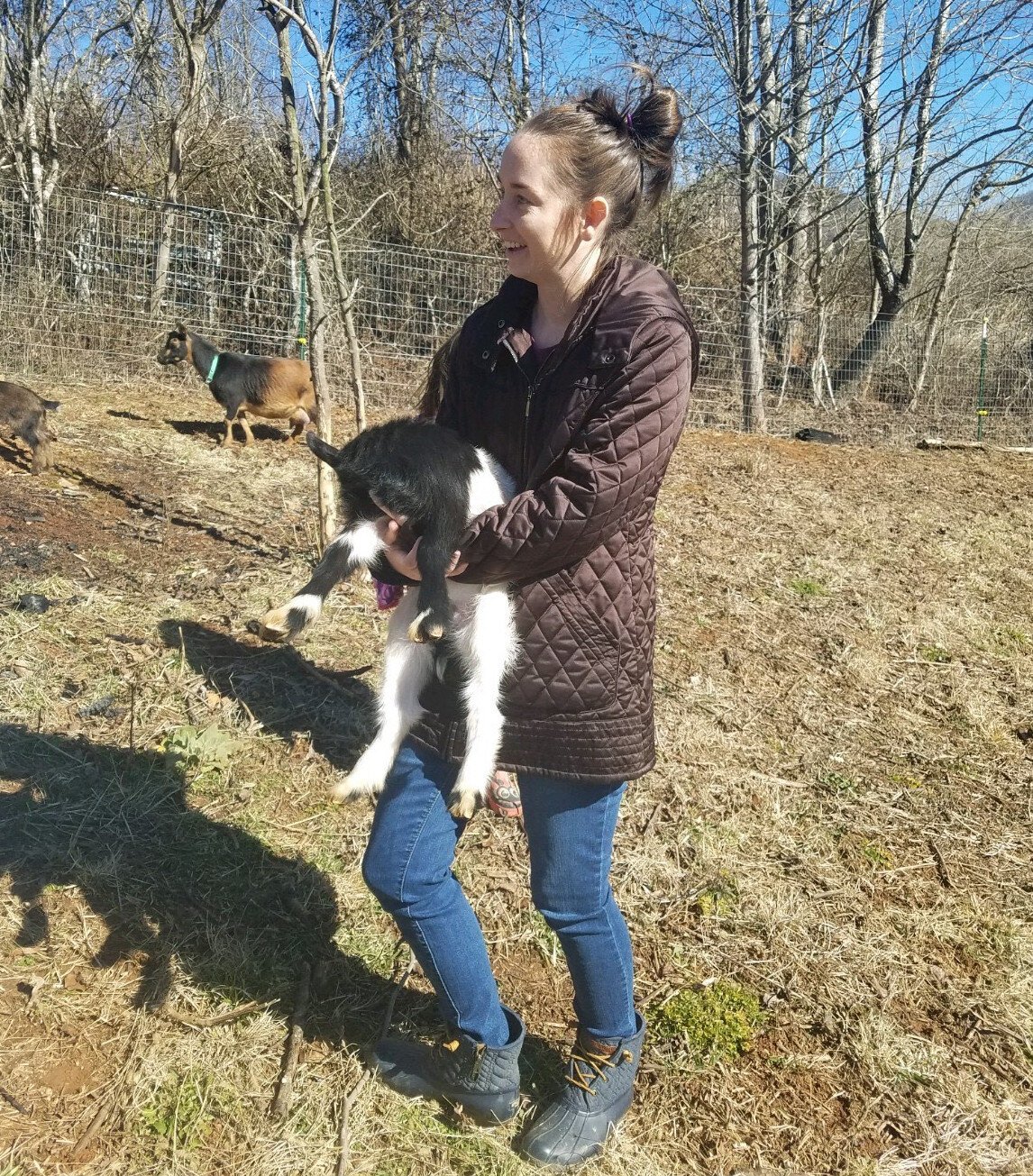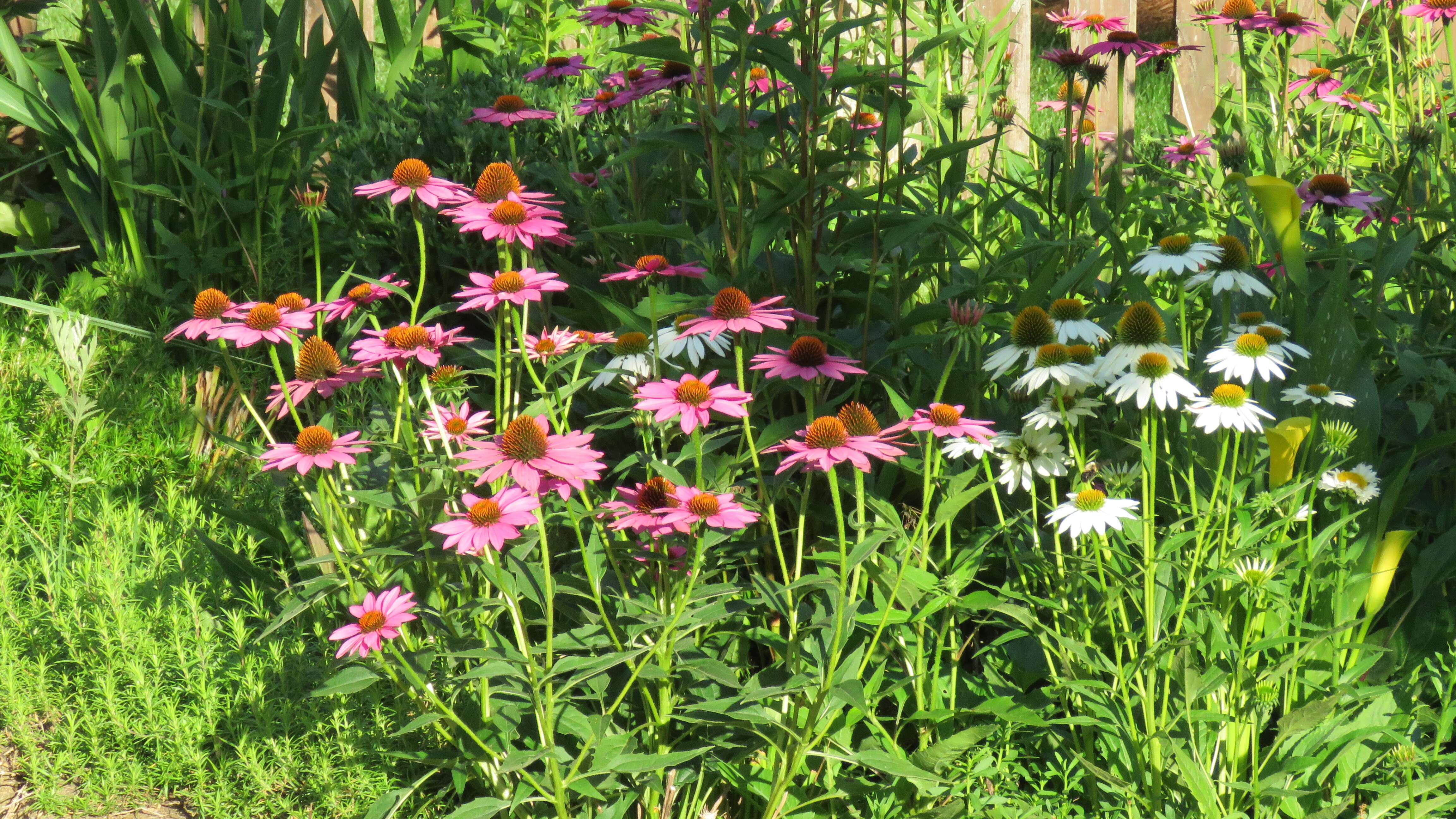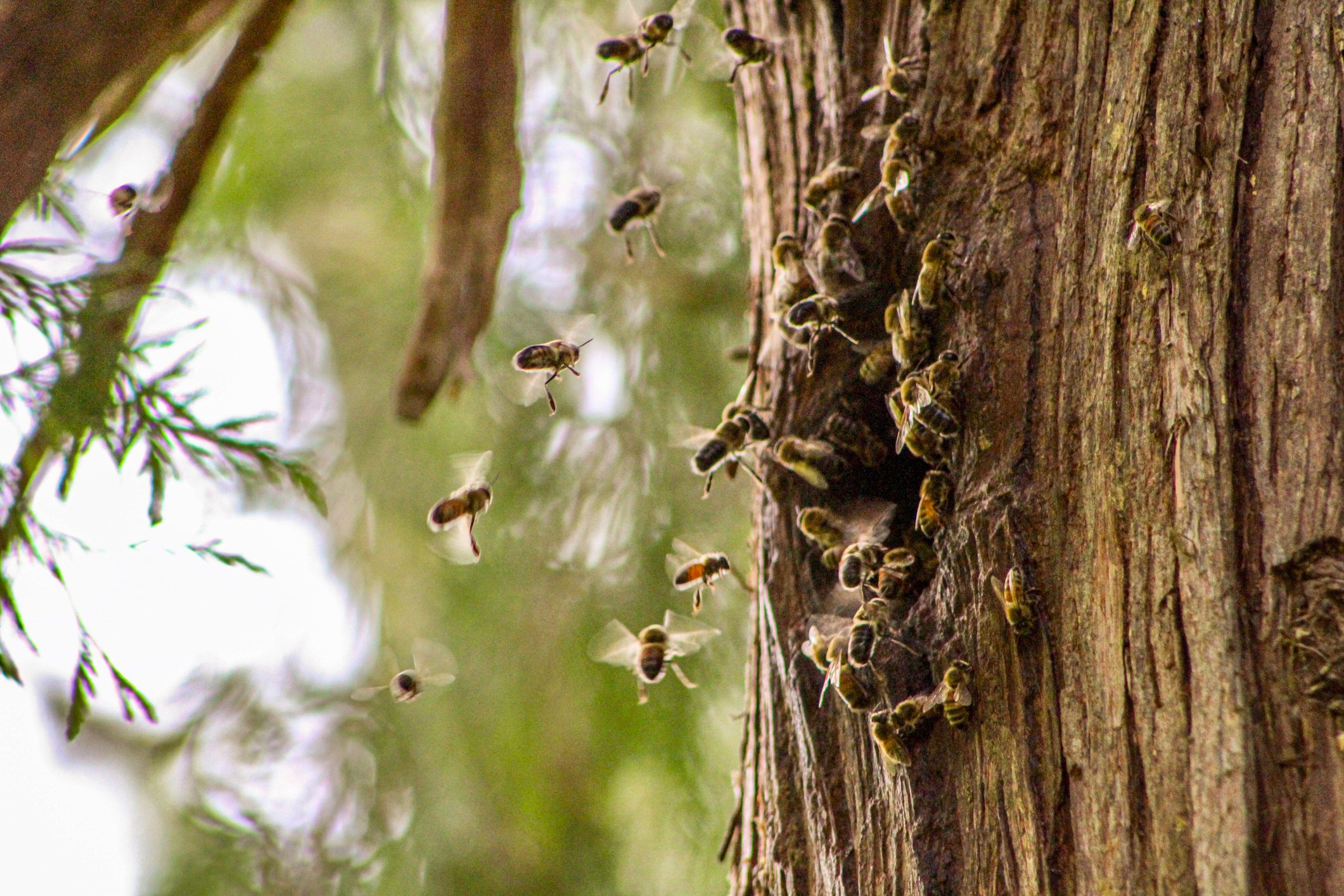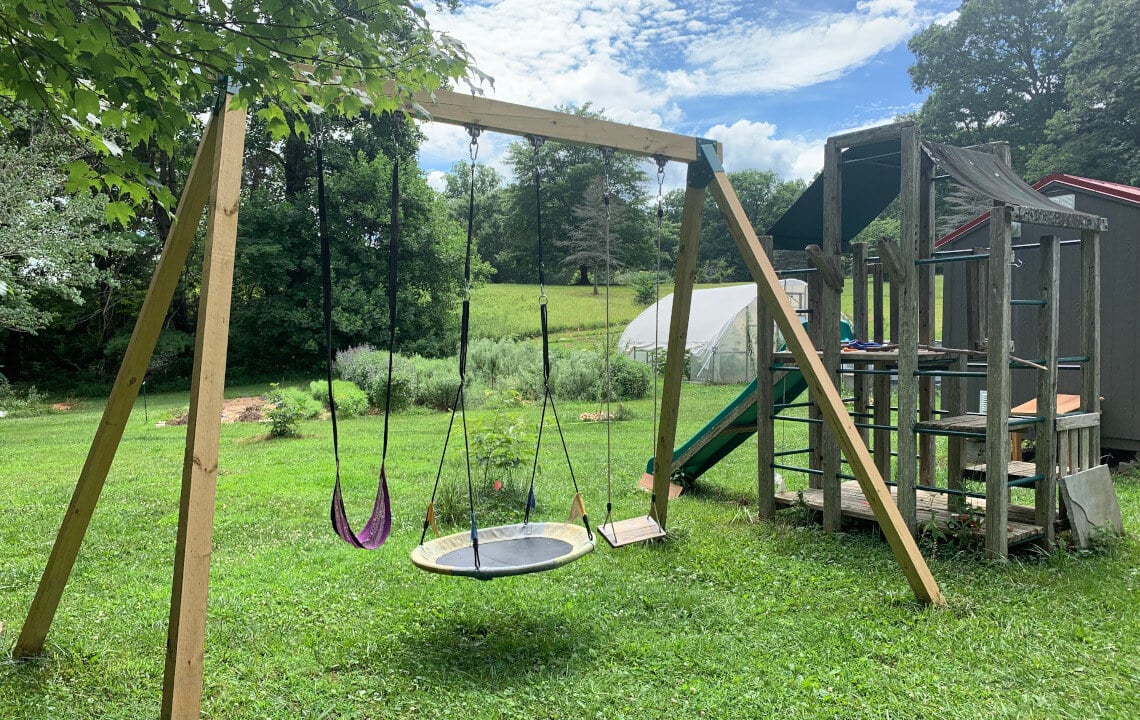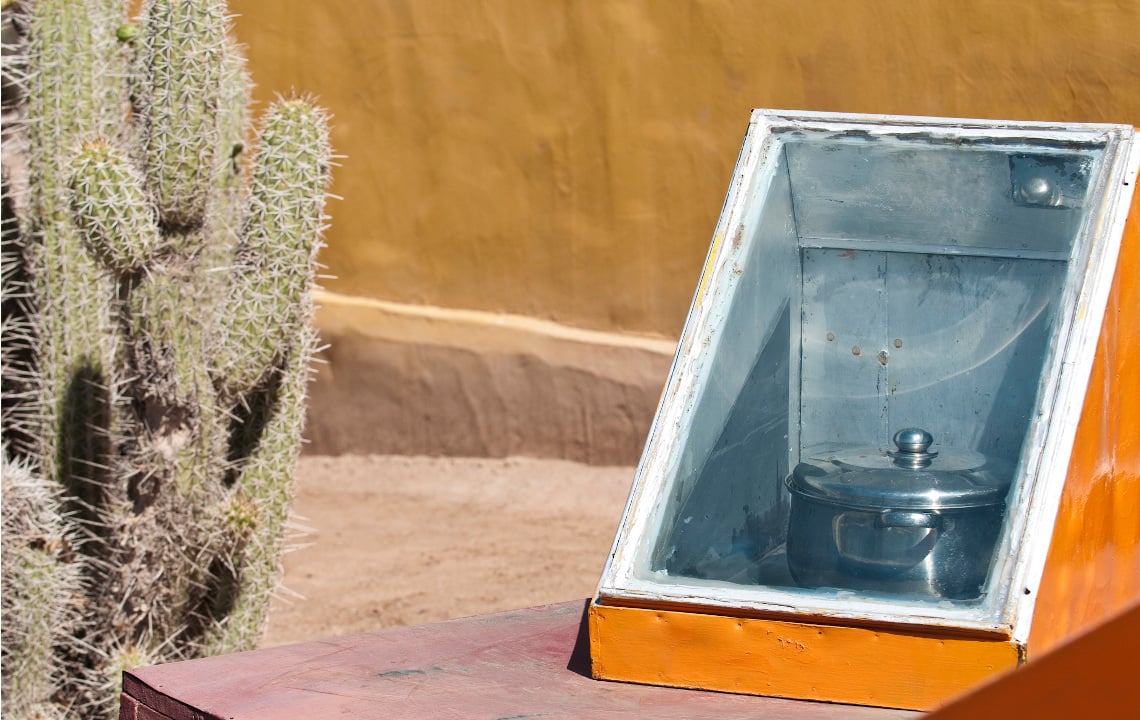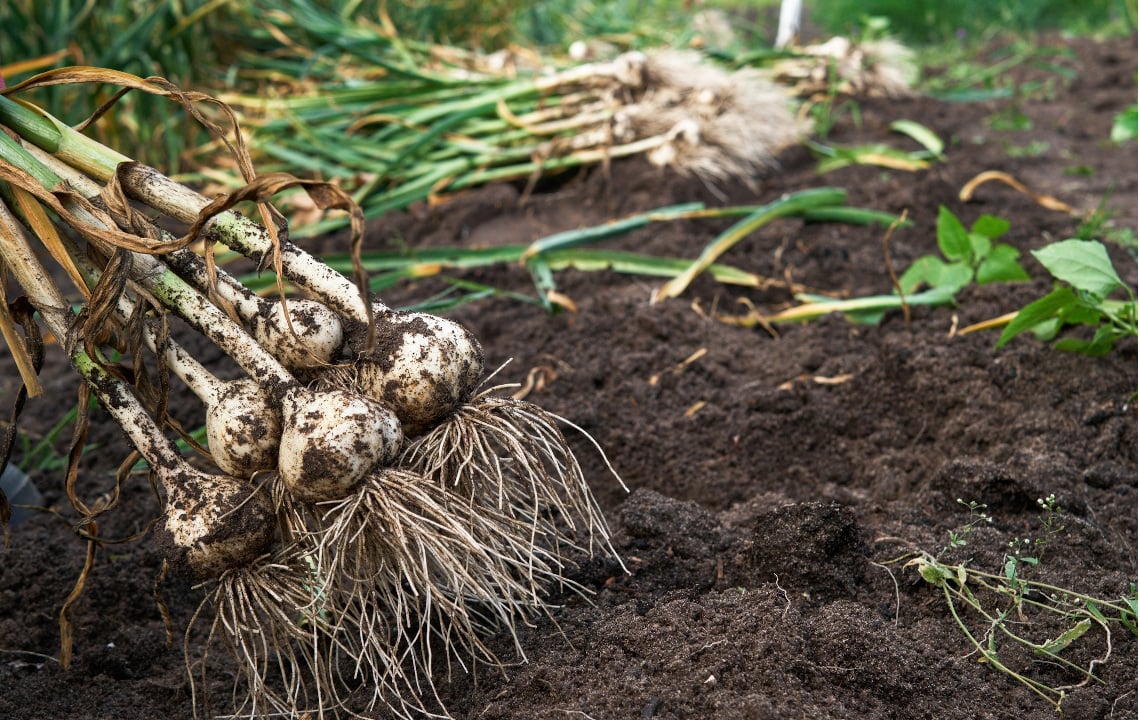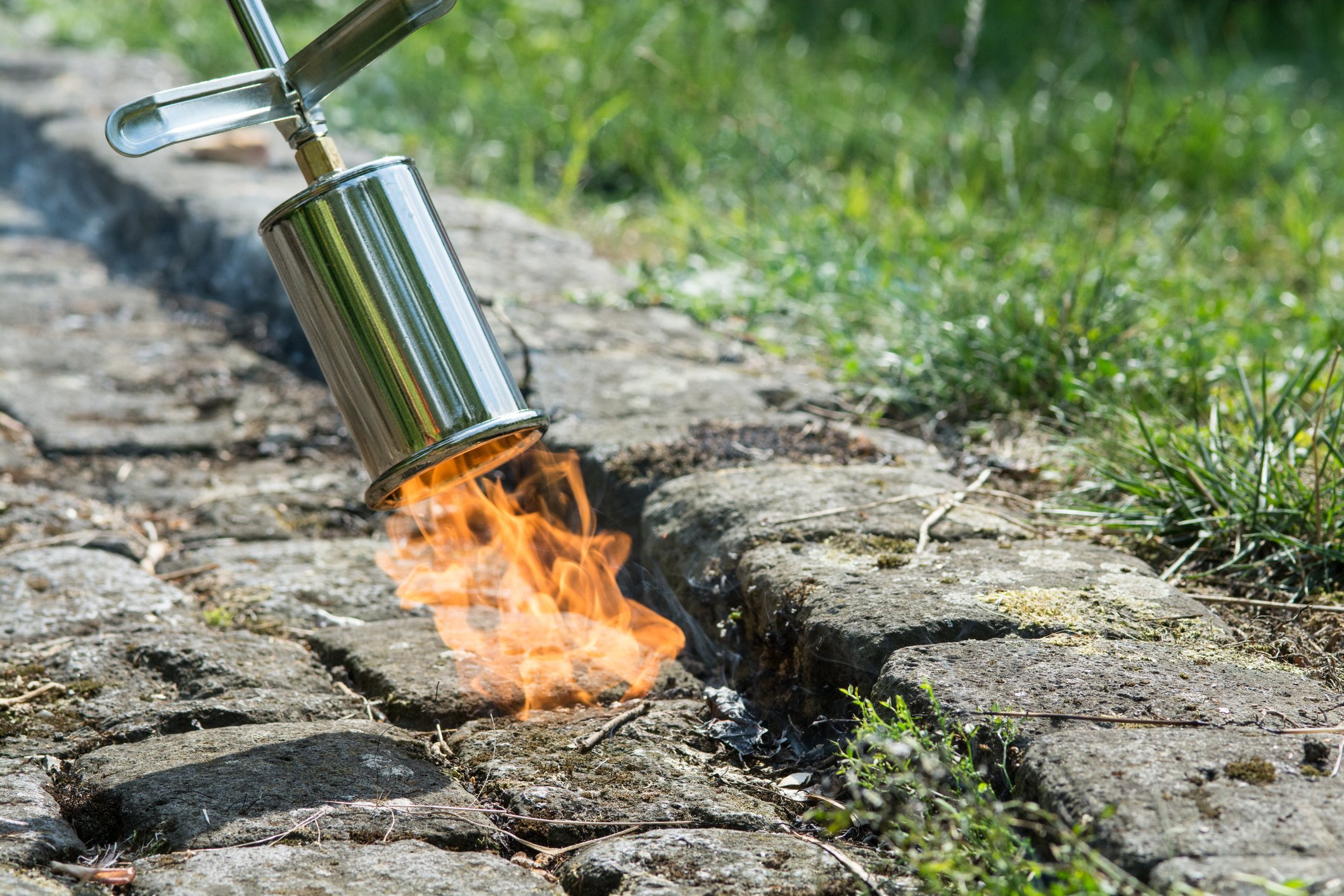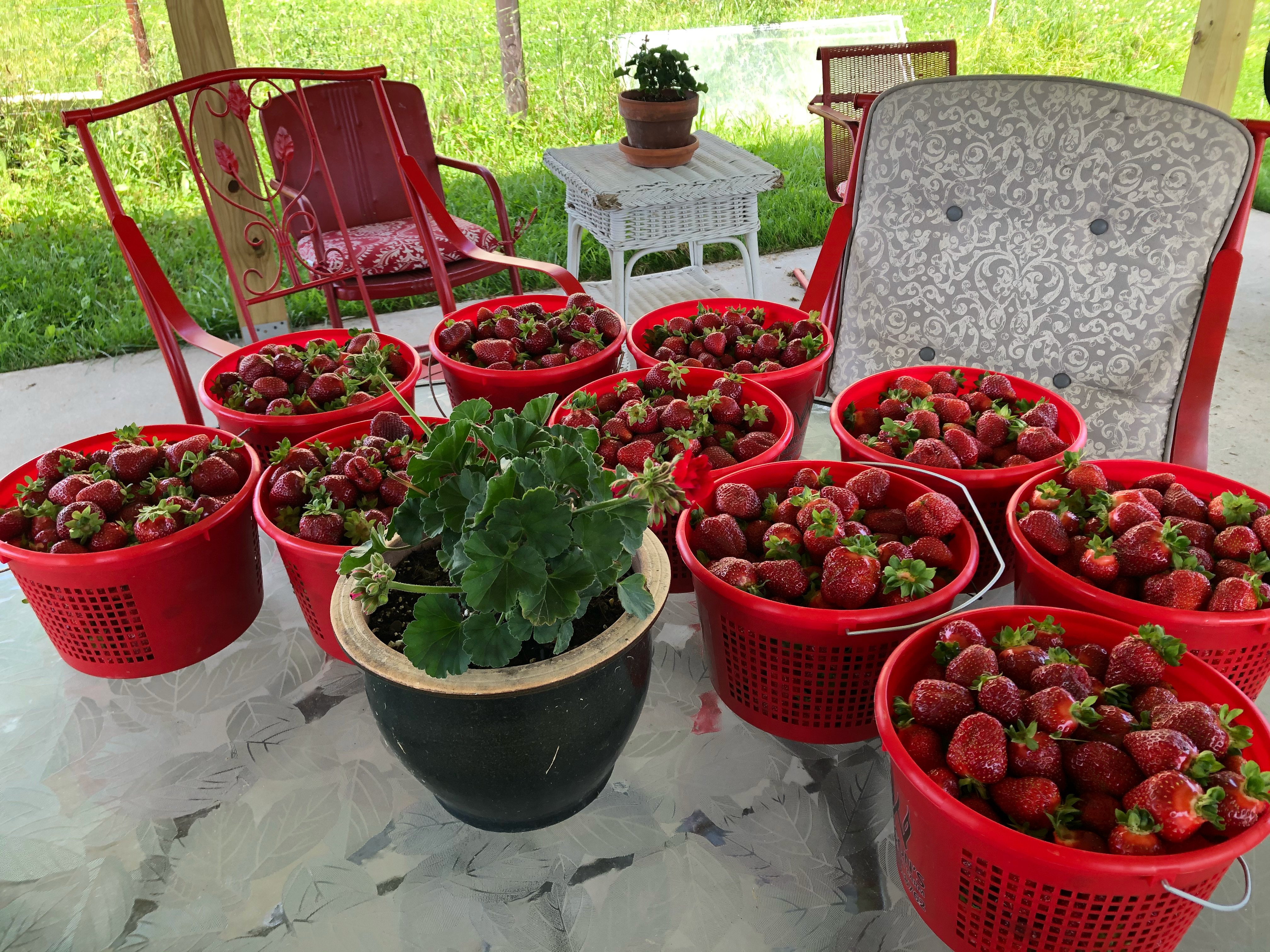As part of our "Rethink Rural Meet the Author" series, Jim Mize interviews our resident survival and outdoors expert L. Woodrow Ross on what it took to acquire his vast knowledge of survival skills, how he got started writing and what life is like as the ultimate outdoorsman. L. Woodrow is pictured above with a hand-made blow-gun, representing just one of his many primitive skill hobbies.
Imagine yourself in the backwoods and all your supplies lost. You have few tools in your possession and have to live by your wits. L. Woodrow Ross is the sort of fellow you would want in your party should such a time come.
Not only would he be good company, but he is skilled at making tools from scratch that are useful in survival and has a knack for teaching others. He also writes about these and other skills for Rethink Rural and in his books.
Woodrow grew up in South Carolina, where as he says, it was all mostly rural.
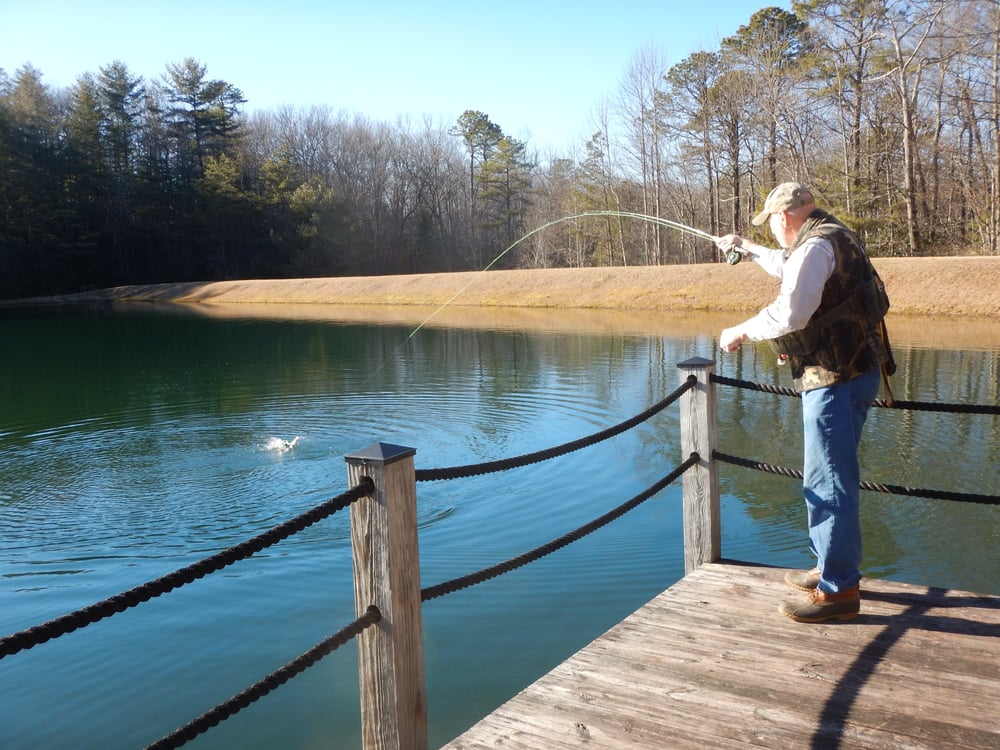
His father taught him at an early age how to fish and shoot. He was an avid reader, particularly of outdoor magazines, and when he saw someone doing something he wanted to do he made or assembled the gear and taught himself.
For instance, wanting to fly fish, he got some bamboo and a “squirrel cage reel” that mostly just held line, tied some chicken-feather flies, and learned the sport.
He ran rabbit gums (box traps) in the winter and with his other outdoor pursuits he contributed wild game to the family table. In those days, it was a way of life.
I had a chance to talk to Woodrow about his writing and outdoor pursuits and here’s how he got started.
RR: “How did you begin your writing career?”
LWR: “I started writing in my late twenties,” said Woodrow, “though success came later. In the late 1980’s, I began to do a weekly outdoor column for the Travelers Rest Chronicle. About the same time I started submitting articles to magazines.”
“Later, the Anderson Independent advertised for an outdoor writer and I wrote for them for nine or ten years. My writing expanded into magazines and then social media. About ten years ago, I started writing how-to books and booklets on Kindle and then started novels after that.”
RR: “What appeals to you about the rural lifestyle?”
LWR: “You get to be self-sufficient and it’s peaceful. For me, it’s part of my heritage. I like gardening. There’s something about seeing that new life and watching it grow.”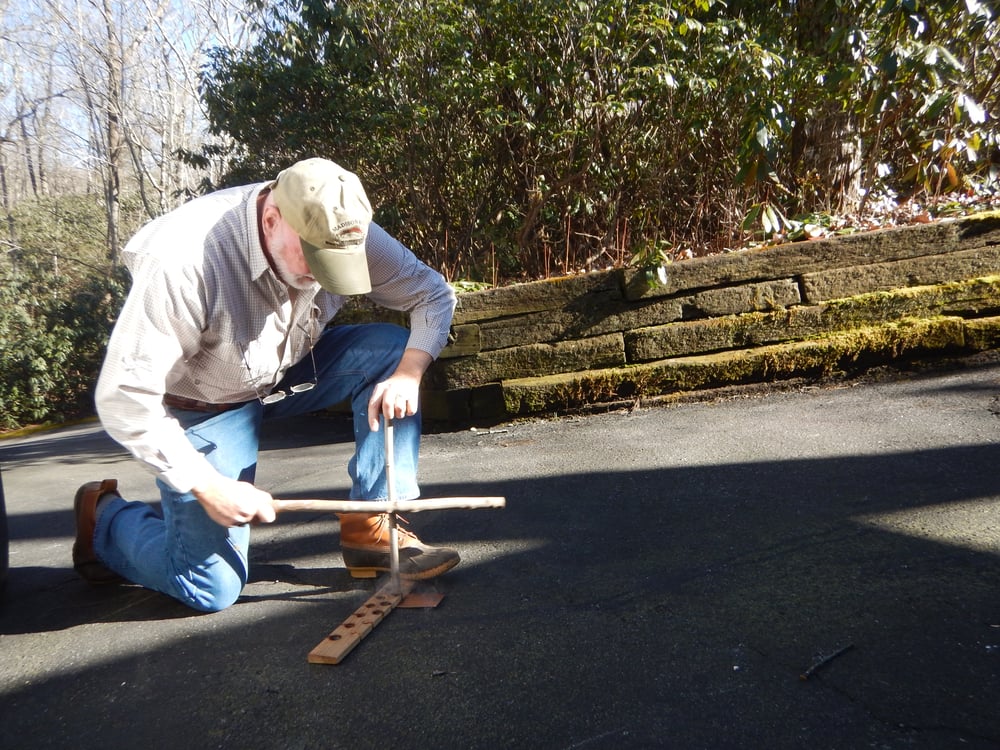
Fire starting demonstration
RR: “How did you come across Rethink Rural?”
LWR: “I just happened upon it on the internet. It came up on my screen one day. I realized the things they promote are things I enjoy doing.”
RR: “What are your favorite outdoor activities?”
LWR: “I like to fly fish and bowhunt. I made my own bow and use it to hunt. Years ago, I used to keep bird dogs and hunt quail.”
RR: “What are your other passions besides writing?”
“I enjoy woodworking and flint knapping and making my own arrowheads.”
Woodrow had some examples of his handiwork to share with me (pictured below). His arrows included handmade fletchings and arrowheads, made as they might have been hundreds of years ago with natural materials. His woodworking skills included etchings on sourwood wading staffs and authentic markings on his arrow shafts. He also showed me knives he had made from various metal scraps, wood and bone.
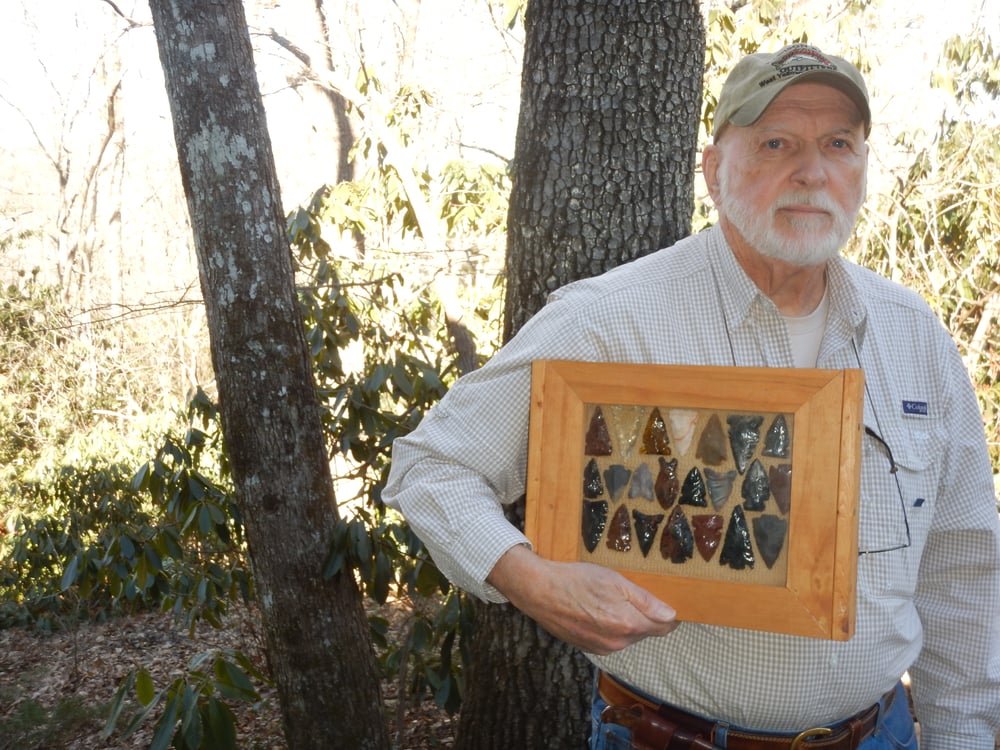 RR: "Tell me about your writing for Kindle.”
RR: "Tell me about your writing for Kindle.”
LWR: “I have 35 books or instructional booklets on Kindle. Many are personal experiences or how-to booklets on everything from fire starting to flint knapping. My five novels are also available from Amazon in paperback.”
RR: “What have been your greatest accomplishments outdoors?”
LWR: “Probably the personal satisfaction in using some of these skills in the outdoors. I like deer hunting with the long bow I made or fly-fishing for a trophy-sized fish. I’ve caught trophy trout in the Southeast and salmon in Alaska.”
RR: “What were your greatest accomplishments in writing?”
“Having so many interests it’s hard to pick a favorite. I have written more about survival skills, camping and how-to books, so those may be at the top.”
RR: “What’s on your bucket list going forward?”
LWR: “Going back to Alaska. I have a friend who says that you shouldn’t go to Alaska when you’re young because you’ll never go anywhere that equals it. I’ve also made about a dozen trips to Montana for weeks at a time.” You can tell by the way he says it that it would be easy to get him there again.
RR: “How would you describe yourself to readers?”
LWR: “I’m just an average guy who likes to read and write.”
Woodrow is also a master of understatement.
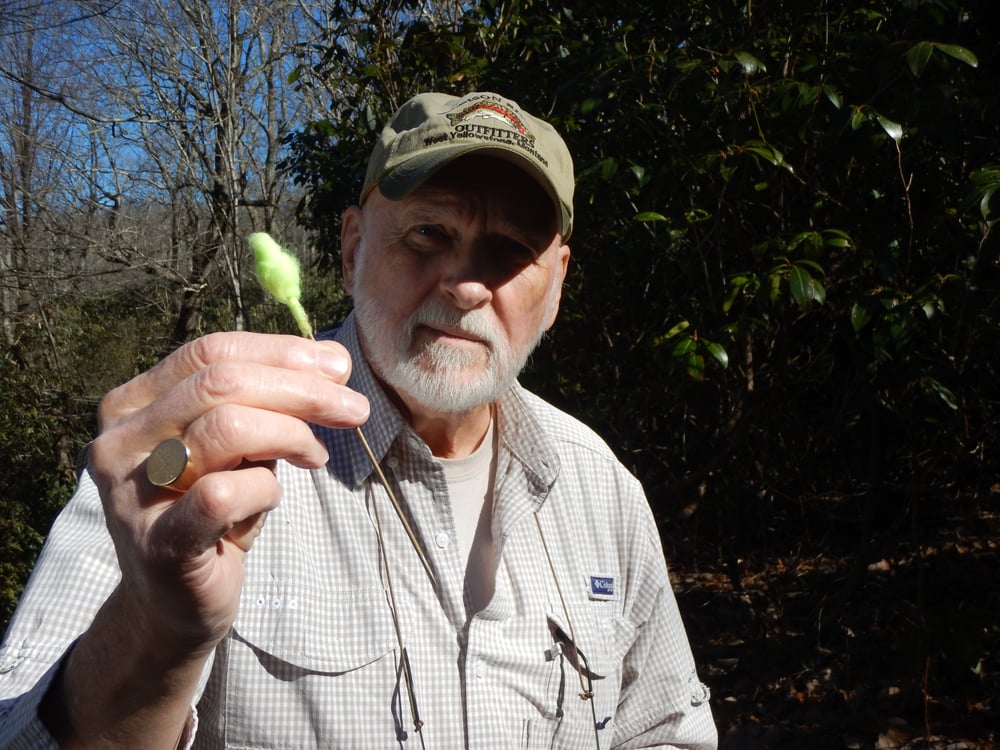
Handcrafted blow dart.
You only have to read his work or hear him explain how to start a fire with a bow to know he is well rounded in outdoor skills and the ability to teach these skills to others.
Skills like these are timeless and Woodrow gives you the impression he would have fit in on the frontier just as well as he fits in today.
Learn more about Woodrow in his articles on hunting, fishing, primitive crafts, gardening, survival skills, retiring rural, and more for Rethink Rural here. And access his Kindle books and novels here.


